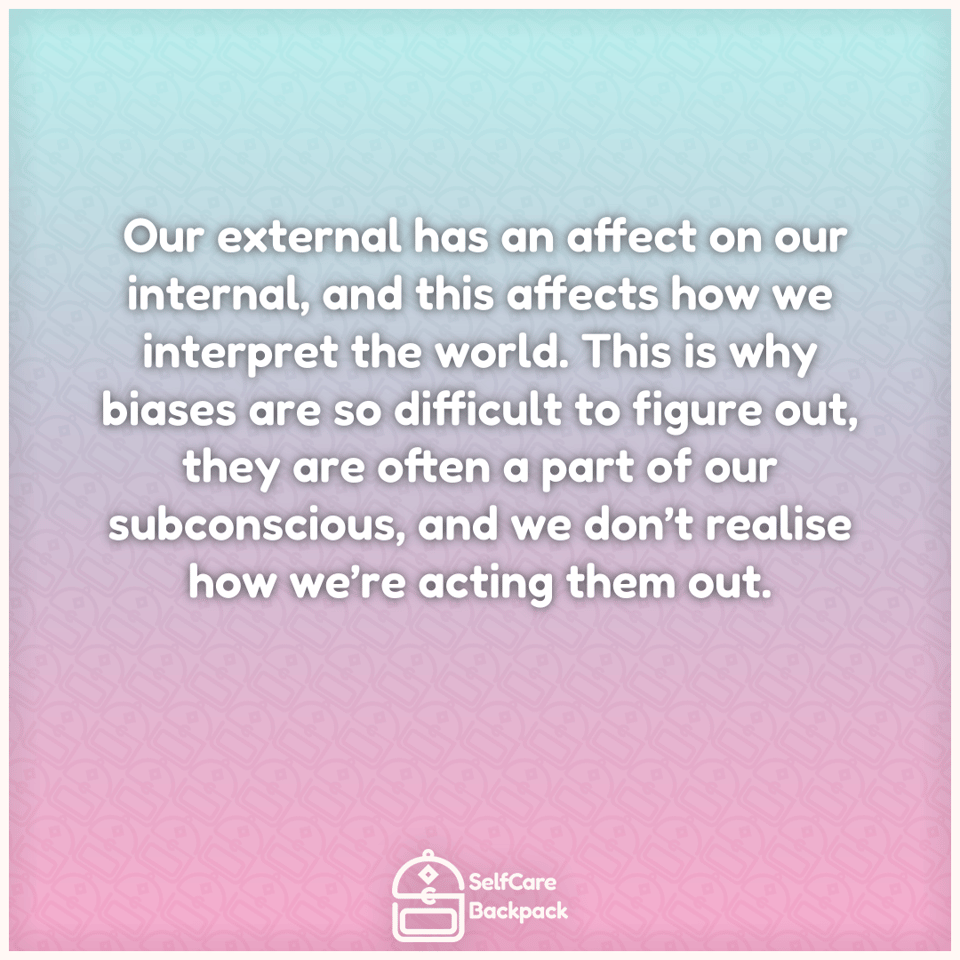Empathy and bias
This newsletter is free, so please feel free to share it to anyone who might find it useful. The SelfCare Backpack newsletter is entirely reader-supported. You can subscribe free for fortnigthtly newletters, or get weekly writing from as little as £5 a month
Empathy can help you figure out your biases.
Cognitive biases are ways we make decisions or take action unknowingly based on faulty reasoning. This isn’t always a negative - we have to make so many decisions in a day that some cognitive bias is helpful to do the heavy lifting, as we see in heuristics - but knowing where we are relying on them can help us work on unlearning the more unhelpful ones.

The empathy bias, or empathy gap is where our empathy is lower or absent completely, where we might expect it otherwise.
There’s a whole bunch of different reasons this could happen, but there’s one I want to talk about specifically.
Our experiences can affect how we think other people feel.
This can be a shared experience (if you felt sad when x happened, you’re more likely to assume someone else experiencing x will feel sad, and maybe even project that onto them). Hang out in any online spaces where people talk about being estranged from parents and you’ll find people who cannot believe it’s possible to do that and be happy. They’re projecting their own feelings onto others, and assuming people are lying about how they feel.
It’s also the case that you own current emotional state can affect how you empathise. There was a study done in 2013 where they found that your ability to make a distinction between someone else’s feelings and your own depends on your emotional state. They gave people pleasant or unpleasant visual and tactile stimuli, and then got them to assess another person’s feelings. If both people got the same stimuli (neither participant knew what stimulus the other had), they were more likely to accurately assess the other’s emotions.
When they got different stimuli, the assessment was more likely to be inaccurate. If someone got unpleasant stimuli, they were more likely to assess the other person as feeling uncomfortable or unhappy, regardless of how that person actually felt. The opposite was true when pleasant stimuli were provided.
(The film fan in me wants to compare this to the Kuleshov effect, where we infer meaning from the sequence of two scenes, more than we do from individual scenes by themselves).
This makes sense. Our external has an affect on our internal, and this affects how we interpret the world. This is why biases are so difficult to figure out, they are often a part of our subconscious that we don’t actively explore, and we don’t realise how we’re acting them out.
Empathy can help us out here. Empathy requires us to have self-awareness. That means knowing our biases, knowing when we’re letting things colour our vision and experiences, and knowing when we’re not in a place to effectively be empathetic (empathy isn’t always possible, because it’s an active process).
Empathy also allows ourselves space and permission to look at our experiences and how they colour our thoughts and feelings. We often feel shame when we realise we have some inherent bias, and we want to shy away from it. However, learning what this bias is, and where it came from can help unpack it and counteract it.
One of the ways to unlearn a bias about people is to seek out experiences from those people with curiosity and openness, and allow ourselves to learn from them. If you never really explore where your biases lie, you won’t be able to unpick them and learn new thought patterns.
Here’s a list of some reflection points for you to think about. This list covers a bunch of different things, I’d advise you pick a section that resonates as something you need to work on, and start from there: https://amazeworks.org/23-journal-prompts-for-2023/
Add a comment: